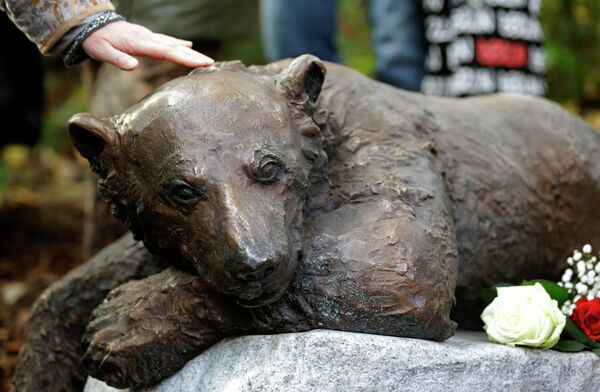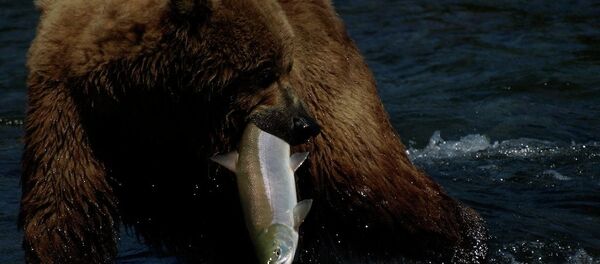Knut, Berlin Zoo's first polar bear to survive past infancy in more than 30 years, was born in December 2006 and raised by zookeepers after being rejected by his mother at birth.
Knut shot to worldwide fame and quickly became the zoo's star attraction; in March 2007, the month when he was first shown to the public, 541 newborn babies in Berlin were named 'Knut.'
However, Knut was just four years old when he died in March 2011. He experienced a seizure and then drowned in his enclosure at the zoo, watched by upset visitors who had come to see him.
On Thursday, German neuroscientists published an article in the journal 'Scientific Reports' with their diagnosis of Knut's disorder, which had never before been diagnosed in an animal.
The polar bear died of a rare autoimmune disorder known as anti-NMDA receptor encephalitis, which causes seizures, cognitive problems and even comas.
Harald Pruss, a researcher at the German Centre for Neurodegenerative Disorders in Berlin, and his colleagues suspected the diagnosis after reading Knut's postmortem report, where Pruss noticed similarities between Knut and human patients with an autoimmune disease that caused brain swelling.

"The results suggest that anti-NMDA receptor encephalitis may be a disease of broad relevance to mammals that until now has remained undiagnosed."
The autoimmune disease, which was first discovered in humans eight years ago, responds to aggressive medical treatment, and scientists hope the diagnosis can help other animals found to be suffering from the illness.




